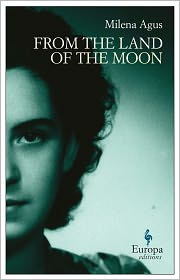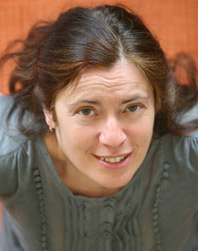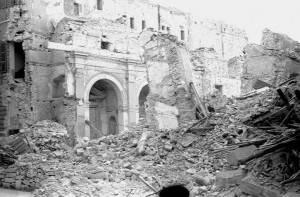Note: This novel was the 2008 WINNER of the prestigious Zerilli-Marimo Prize for Italian fiction, awarded every two years.
“Her whole life she had been told that she was like someone from the land of the moon, [but] it seemed to her that she had finally met someone from her own land, and that was the principal thing in life, which she had never had.”
I must co nfess that one of the reasons I was attracted to this novel initially was that I had never read a novel written by a Sardinian author before, and I wondered how different this novel might be from other Italian novels. While it is different from urban Italian novels, it has much in common with novels set in rural Italy, at least those by authors like Carmine Abate, who sets his novels in Calabria, in the toe of Italy. Both authors focus on families who are from poor communities which have suffered from World War II, and both have as their main characters independent people who are trying to be true to their own values and the values of their communities, while also following their dreams, however simple they may be.
nfess that one of the reasons I was attracted to this novel initially was that I had never read a novel written by a Sardinian author before, and I wondered how different this novel might be from other Italian novels. While it is different from urban Italian novels, it has much in common with novels set in rural Italy, at least those by authors like Carmine Abate, who sets his novels in Calabria, in the toe of Italy. Both authors focus on families who are from poor communities which have suffered from World War II, and both have as their main characters independent people who are trying to be true to their own values and the values of their communities, while also following their dreams, however simple they may be.
Setting her novel in Cagliari, Sardinia, author Milena Agus creates a story which spans three generations, focusing on women from two families who are joined through marriage. An unnamed contemporary speaker feels particularly connected to her paternal grandmother, and as the speaker pieces together this woman’s life from what she herself recalls about her and from the family lore which has survived through the memories of the rest of the family, she creates a woman who not only searches earnestly for love but is absolutely determined to experience it in all its splendor, believing that it is “the principal thing in life.”
This grandmother was thirty in 1943, and  unmarried, and she had never had a real love. The local boys had always seemed to be attracted to her initially but were then somehow repelled within a few meetings with her, despite her beauty. In fact, just before she met the man who would become her husband, she had thrown herself down a well, frustrated and despairing at having missed the love that she so desperately wanted. She believed, however, that “she wasn’t mad, she was a creature made at a moment when God simply had no wish for the usual mass-produced women and, being in a poetic vein, had created her.” Her eventual marriage was forced upon her by her father, who feared that her growing reputation of being mad would eliminate all future possibilities of marriage. This marriage was to an older man, a widower who had lost his family in the Allied bombing. Neither partner expected anything from the marriage, and she encouraged her new husband to continue to visit the local brothels. When, after seven years and many miscarriages, her doctor advises her to go to a spa for treatment, her life changes. Exactly nine months after the spa visit, she bears a son—the speaker’s father. The speaker’s other grandmother, Lia, had a daughter at age eighteen with a local shepherd, who was married, and this daughter becomes the speaker’s mother.
unmarried, and she had never had a real love. The local boys had always seemed to be attracted to her initially but were then somehow repelled within a few meetings with her, despite her beauty. In fact, just before she met the man who would become her husband, she had thrown herself down a well, frustrated and despairing at having missed the love that she so desperately wanted. She believed, however, that “she wasn’t mad, she was a creature made at a moment when God simply had no wish for the usual mass-produced women and, being in a poetic vein, had created her.” Her eventual marriage was forced upon her by her father, who feared that her growing reputation of being mad would eliminate all future possibilities of marriage. This marriage was to an older man, a widower who had lost his family in the Allied bombing. Neither partner expected anything from the marriage, and she encouraged her new husband to continue to visit the local brothels. When, after seven years and many miscarriages, her doctor advises her to go to a spa for treatment, her life changes. Exactly nine months after the spa visit, she bears a son—the speaker’s father. The speaker’s other grandmother, Lia, had a daughter at age eighteen with a local shepherd, who was married, and this daughter becomes the speaker’s mother.
As the speaker recalls the s tories of these characters, the narrative swirls in time and place, and it is impossible to tell the extent to which the speaker may be embellishing them. Several story lines overlap, and the two grandmothers have similar experiences in love bearing children who are not fathered by their husbands. The shepherd who fathered Lia’s baby throws himself into a well, just as the other grandmother has done. Both grandmothers write poetry, and the deaths of true lovers (or those believed to be true lovers) seem to happen simultaneously. The reader does not know whether these are coincidence or if, memory being fallible, the speaker is confusing family lore and the people who experienced these events. Then again, she could be inventing everything, following in the tradition of her two writer grandmothers.
tories of these characters, the narrative swirls in time and place, and it is impossible to tell the extent to which the speaker may be embellishing them. Several story lines overlap, and the two grandmothers have similar experiences in love bearing children who are not fathered by their husbands. The shepherd who fathered Lia’s baby throws himself into a well, just as the other grandmother has done. Both grandmothers write poetry, and the deaths of true lovers (or those believed to be true lovers) seem to happen simultaneously. The reader does not know whether these are coincidence or if, memory being fallible, the speaker is confusing family lore and the people who experienced these events. Then again, she could be inventing everything, following in the tradition of her two writer grandmothers.

Whatever the case, the novel deals beautifully with primal events and universal themes—the need to belong, the importance of ties to a community, the yearning for true love, the vagaries of chance or fate, the importance of memories, and the need to create. As the generations move forward from World War II to the present, each character must protect his/her memories against change in order to preserve a sense of selfhood. It is only the speaker who has the liberty to tinker with the past and/or the truth. When, in the conclusion, the speaker’s own life is brought up to date, the reasons for all these memories become clear, and her need to connect with the past poetically is understandable. Passion, in all its many forms, rules the lives of the characters here—and affects the reader, too.
Photos, in order: The author’s photo appears on: http://bibliobs.nouvelobs.com
The 1943 destruction of Via Manno, Cagliari, where the speaker’s family home was located: http://www.mariusesculapio.com
A World War II bunker in Cagliari, Sardinia, is one of many similar fortifications still seen here: http://forum.axishistory.com
